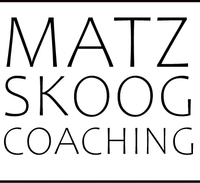Six principles that will turn good intentions into positive actions and make the impossible possible
Over the past few weeks I have been reflecting on goal setting. Much has been written on the subject, emphasising that having properly structured, ambitious goals, written down will make you successful, wealthy and happy. A 1953 Yale study is often quoted as evidence of this. However, it has been determined that no “Goals Study” of the Class of 1953 actually occurred. There is on the other hand a fair amount of anecdotal evidence confirming that a large proportion of people with goals abandon them long before accomplishing what they set out to do. This article therefor is not about setting goals, but about how to assess the quality of your goals and their likelihood of being successfully completed because: The true challenge is not in setting goals—but in realising goals.
There are a variety of systems available for effective goal setting. Not least the well-known S.M.A.R.T. system. The acronym that stands for: specific, measurable, achievable, relevant and timed. An excellent system that is indeed both smart and effective in creating goals with clear purpose and defined deadlines. However, my view is that goal setting can easily become slightly contrived exercises in ticking boxes. Because it is important to understand that purpose is not the same as meaning and a SMART goal, however specific its purpose, will not necessarily contain a meaning that will inspire and drive you onwards.
I have therefore designed a process, which I call The Hexagon of Success that if you apply it will significantly increase your chances of realising your goals by ensuring they are not merely an exercise in box-ticking, but also represents something that you truly want and can achieve. The process appeals both to your emotions and powers of reason, as well as providing a practical structure for implementation.
The Hexagon of Success is built around six principles Sensible, Significant, Sincere, Small, Simple and Sustained. I shall address each principle in turn, but before continue reading I suggest you take a moment to think of one of your own goals against which you can test these ideas for your self.
1. SENSIBLE
A genuine belief that you can achieve your goal will increase your chances of success. Therefore first of all confirm that your goal is sensible, and not a pie in the sky? By sensible I mean that it can actually be accomplished. If you have prepared your goal properly, using for instance the SMART system, we can assume it is indeed doable so this should simply be a matter of confirming that this is the case.
Even though a goal should be bold and ambitious your expectation of successfully completing it must be realistic. A goal with an unlikely probability of success will quickly become de-moralizing and de-motivating, which is the exact opposite effect that it should have on your self-confidence. If there is any doubt, what so ever, that your goal is sensible review it once more.
2. SIGNIFICANT
Your goals might be short, medium or long term; personal or business, but in every case it must be a wish for something that will bring significant results to be worthy of pursuit. A goal providing limited return and that is too easily accomplished, perhaps just a general task, should go on your daily to-do list. It does not belong on your personal development plan and should not be allowed to occupy valuable time or space in your mind.
Some questions that will help you ascertain whether your coal is really significant might be:
· What exactly will I achieve
· What will I have when I achieve this
· What in my life will be better
· What will be different
· Who else will benefit
If the answers to these questions points to a significantly improved situation, the thought of which inspires you, then you will have a worthwhile goal to pursue.
3. SINCERE
Having a clear purpose is no guarantee, however, that your objective has true meaning to you, so the outcome must be something that you truly and sincerely desire, or it will not be sufficiently motivating. Your sensible and significant goal must be something that you sincerely want to do, not something that you think you should do.
To check in with yourself I suggest you answer the question: why do I want this, five times—with an emphasis on “I”.
· I want this because…
· I want this because…
· I want this because…
· I want this because…
· I want this because…
If you can come up with five compelling reasons, intellectual, practical and emotional, as to why you want this outcome you will have a goal truly worth striving for. The thought of your goal should excite you and make you feel proud.
I repeat—your goal must be something you actually want to do, and not something you think you should do: two considerably different driving forces, the former being intrinsic and the latter extrinsic. And personal development has to be intrinsically driven to be successful. So if your sensible goal does not pass the significant and sincere tests it may not be worth pursuing at all.
4. SMALL
The second part of the process starts by deciding on small actions to take towards your objective. By breaking a seemingly overwhelmingly large goal into smaller parts it will seem less daunting and more manageable, which will give you a feeling of control. Each small action needs to be just big enough to be doable in one go. (Otherwise the small action becomes a project in its own right.) By tackling each action separately, one by one, you will soon have completed the larger objective without feeling overwhelmed.
Personal growth starts where your comfort zone ends, however, so your small action should push you ever so slightly beyond where you started out. Not so far beyond that it becomes a daunting chore, which might cause you to procrastinate. Ideally it should feel like a fun and rewarding challenge.
But a small step for some is a giant leap for others, and your comfort zone will change depending on context, so chose your action well and make sure that it too fits the sensible principle, i.e. that you can actually manage it.
5. SIMPLE
Your small action must be simple to implement and incorporate into your regular routines; preferably without the need for additional scheduling, preparation or special equipment. (Unless it involves going to the gym for instance.) Anything that requires specific arrangements is too easy to put off, especially if you are running short of time. So you need to think of ways to simply incorporating your small actions into your day-to-day activities.
An effective method for integrating actions into daily routines is the when/then technique:
· When I get up in the morning then I sit down and write for half an hour, then I have a shower.
· When I commute to work then I read ten pages in my book on personal development.
· When I come home from work then I will straightway go jogging.
Patterns of behavior that you regularly follow will vastly boost productivity as they reduce the need for planning and decision-making. This kind of when/then strategies can be very effective in achieving this.
6. SUSTAINED
The last principle is concerned with take action towards your goals, because actions must be sustained persistently over a period of time to bear fruit. Small manageable actions taken consistently will have greater effect in the long term than big actions taken infrequently. Creating rituals will enable important actions to remain consistent and sustained. They will also help you overcome procrastination.
Rituals are different from habits in that they are performed intentionally rather than habitually. This awareness will therefore provide a rewarding sense of achievement as you progress towards your goal. If your goal is to eliminate a bad habit, or to develop new habits, rituals that will sustain your actions consistently over a longer period if time are particularly effective. But rituals are very personal and you need to establish appropriate ones that work for you. The when/then technique mentioned above can be very effective to this end.
IN SUMMARY
Goals aligned with the first three principles, sensible, significant and sincere, will appeal both to your emotions and powers of reason, which is motivating and inspiring. And by putting in place small actions that are simple to implement the likelihood of a sustained and disciplined approached to taking action, and therefore the likelihood of success, is substantially increased.
Finally—When you do complete an ambitious goal don’t forget to celebrate your accomplishments. It is nice when other people recognise your achievements but it is important that you do so too. So give yourself a pat on the back and a treat for each successfully accomplished goal.


